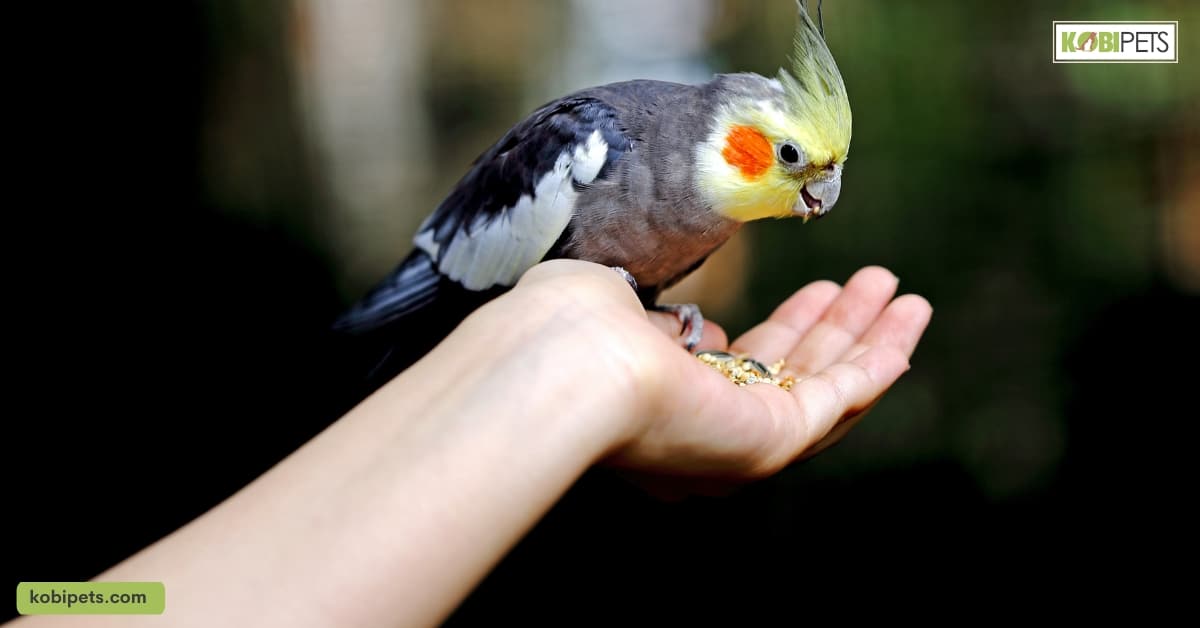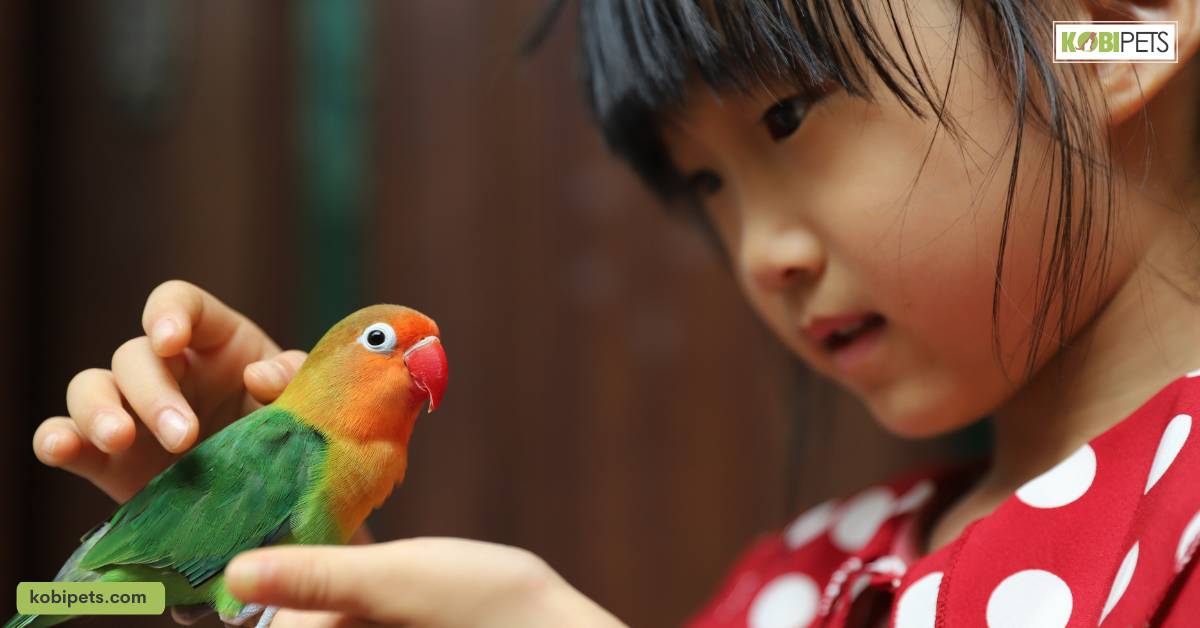As bird owners, it’s important to pay attention to our feathered friend’s behavior and well-being. Just like any other pet, birds can experience stress that may negatively impact their health and behavior. However, recognizing the signs of stress can be a challenging task for even the most attentive owner.
Recognizing stress in your bird is essential for maintaining its health and happiness. Changes in behavior, physical symptoms like feather plucking, and environmental factors can all indicate stress. By identifying and reducing potential stressors, you can improve your bird’s well-being. Seek professional help from a veterinarian for symptoms.
Signs of Stress in Birds
Birds are fascinating creatures with diverse behaviors and character traits. However, like humans, birds can experience stress in a variety of situations. Identifying signs of stress in birds is crucial to their health and well-being.
These are some of the most common signs of stress to look for in birds:

Signs of Stress in Birds
- Feather plucking: This is a common sign of stress in birds that may result in bare patches on the bird’s body.
- Changes in appetite or weight: When birds are stressed, they may refuse to eat or drink, which can lead to weight loss.
- Aggression: Birds under stress may become more aggressive towards their owners or other birds.
- Excessive vocalization: If your bird is constantly squawking, chirping or screaming, it may be a sign of stress.
- Lethargy: Stressed birds may become less active or appear tired all the time.
- Self-harm: Some birds may harm themselves when they are stressed, resulting in injuries or bleeding.
Physical Indicators of Stress in Birds
As living beings, birds are not immune to the effects of stress. In fact, stress can have a significant impact on birds, affecting their behavior, overall health, and even their lifespan. As a result, it is important for bird owners, researchers, and enthusiasts to be able to recognize the physical indicators of stress in birds.
Here are some of the common physical indicators of stress in birds:

Physical Indicators of Stress in Birds
- Changes in posture or movements: Stressed birds may hunch their shoulders or slump their posture, and they may also move or fly less than usual.
- Changes in vocalizations: Birds may squawk or make other unusual noises when they are stressed.
- Changes in eating and drinking habits: Stressed birds may lose their appetite or drink less water than normal.
- Increased heart rate: Stress can cause a bird’s heart to beat faster than usual.
- Changes in breathing: Stressed birds may breathe more quickly or more shallowly than usual.
- Increased metabolism: Stress can increase a bird’s metabolism, which can lead to weight loss and other health problems.
Environmental Factors that Can Cause Stress in Birds
Birds can be easily stressed by various environmental factors, which can have an adverse effect on their health, behavior, and well-being. These factors can be physical, social, or even psychological in nature. As a bird owner, it’s essential to know and understand these factors to avoid them or minimize their impact on your bird.
The following are the environmental factors.
1. Temperature and Humidity
Birds have a body temperature that is higher than humans, and they are susceptible to changes in temperature and humidity. Extreme variations in either of these can cause stress in birds, leading to metabolic issues, respiratory problems, and even death.
2. Lighting
Light is necessary for birds to regulate their internal body clock, hormonal cycles, and mood. However, exposure to incorrect lighting, such as bright or dim lights, can disrupt their natural circadian rhythm, leading to stress and associated health problems.
3. Noise and Vibration
Birds are sensitive to loud and sudden noises and vibrations. Exposure to excessive noise levels or vibrations from heavy machinery can cause them to feel threatened and stressed, leading to health issues such as feather plucking, digestive problems, and abnormal breathing patterns.
4. Social Interaction
Like humans, birds are social creatures and thrive in groups. However, overcrowding, inadequate space, and lack of social interaction with other birds or humans can cause stress in birds, leading to behavioral and health problems.
5. Cage Environment
The cage environment plays a crucial role in the physical and psychological well-being of birds. Inadequate cleanliness, insufficient space, and an unstimulating environment can cause stress in birds, leading to aggression, abnormal behavior, and health issues.
Tips for Reducing Stress in Birds
Birds, like any other living creature, experience stress in their daily lives. However, reducing stress in birds is crucial to their overall health and well-being. As responsible bird owners, it is important to understand the common causes of stress in birds, such as loud noises, bright lights, and overcrowding.
Here are some tips for reducing stress in birds:
1. Provide a Safe Environment
Create an environment that is safe and free from potential threats or hazards such as loud noises, extreme temperatures, or predatory animals. Make sure your bird’s cage is placed in a secure, low-traffic area with plenty of natural light and fresh air.
2. Provide Adequate Space
Ensure that the bird’s cage is spacious enough to allow them to move freely, and provide plenty of toys and perches to keep them entertained. This can help reduce stress levels and improve their overall well-being.
3. Keep a Regular Routine
Maintain a consistent routine for feeding, playtime, and social interaction with other birds or humans. Keeping a regular schedule can help reduce stress and provide your bird with stability.
4. Provide Nutritious Food
Ensure that your bird is getting a healthy, nutritionally-balanced diet, and provide plenty of fresh water.
5. Monitor Social Interaction
Monitor the interactions between birds in multi-bird households, as aggressive behavior can be an indication of stress.
In conclusion
It is crucial to reduce stress in birds in order to maintain their physical and mental well-being. Various methods are available to reduce stress in birds, including environmental enrichment, proper nutrition, and providing a comfortable living space. Environmental enrichment can include providing toys and natural perching areas that help to mimic their natural habitat.
By implementing these measures, bird owners can ensure that their feathered friends are happy, healthy and continue to thrive in their home environments.
















